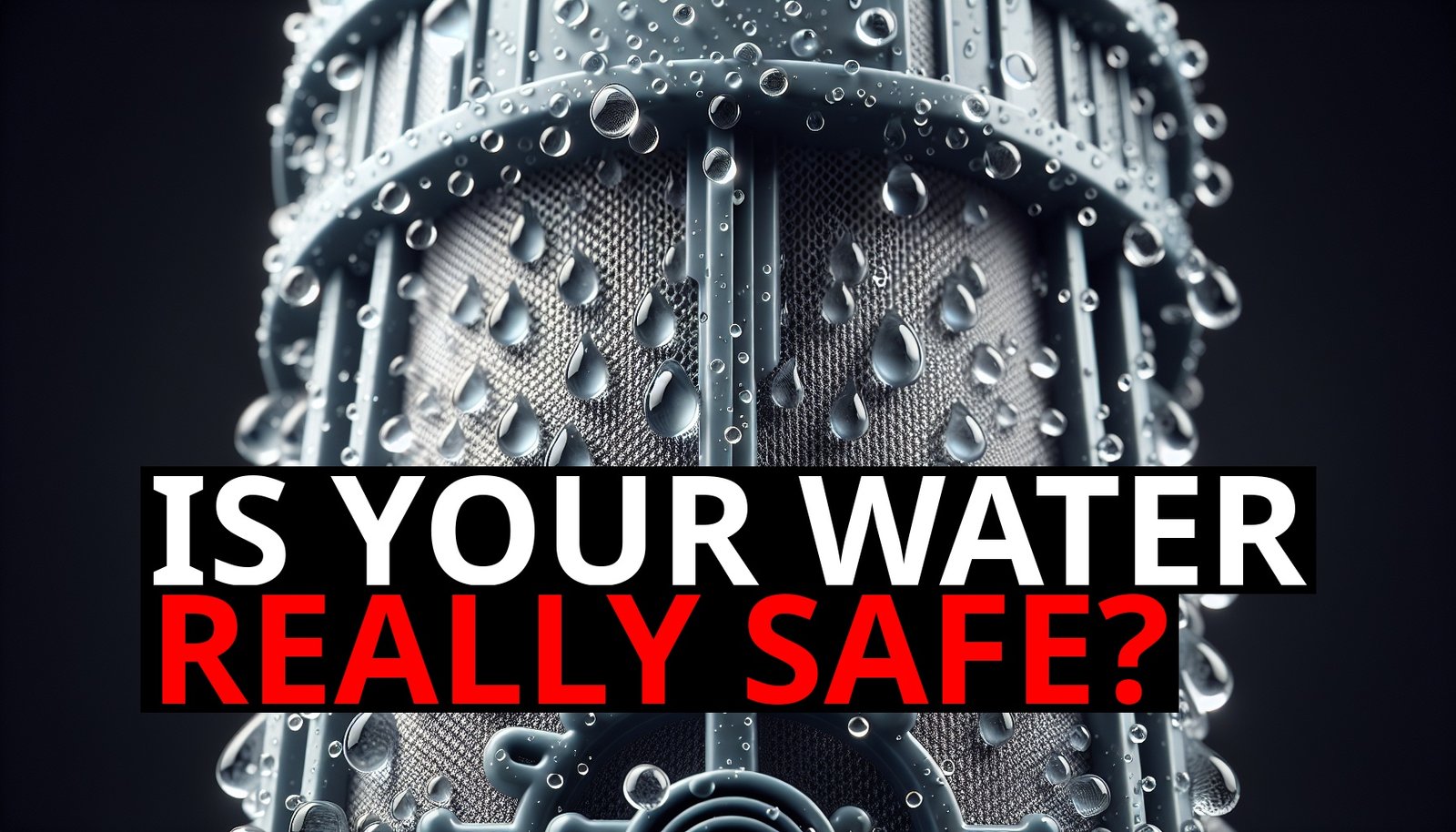Could Your Water Filter Be Adding More Than It Removes?
You’ve made a smart choice by using a water filter. After all, filtered water is supposed to be cleaner, safer, and better-tasting than what comes straight from the tap. But what if your water filter—the very tool you trust to purify your water—is actually introducing harmful chemicals into it? That plastic water filter or pitcher sitting on your counter might not be as harmless as it seems.
While water filters are great for removing contaminants like chlorine, lead, and other impurities, the plastic they’re made from could be leaching dangerous chemicals back into your water. Let’s dive into the potential risks associated with plastic water filters and pitchers, and explore whether they’re as safe as you’ve been led to believe.
The Hidden Dangers Of Plastic Water Filters
Plastic is a ubiquitous material in water filtration systems, from the pitcher itself to the filter housing and the various components inside. But as convenient as plastic may be, it comes with some significant health concerns:
– Chemical Leaching: Most plastic water filters and pitchers are made from materials that can leach chemicals into your water, especially over time or when exposed to heat. Common culprits include Bisphenol A (BPA), Bisphenol S (BPS), and phthalates—chemicals known for their potential to disrupt hormones and cause various health issues. Even BPA-free plastics aren’t completely safe, as they may contain other harmful chemicals that can leach into your drinking water.
– Microplastics: Recent studies have shown that microplastics—tiny plastic particles that are often invisible to the naked eye—can contaminate drinking water, even after it’s been filtered. These microplastics can come from the breakdown of plastic components within the filter itself or from the water supply. The health effects of consuming microplastics are still being studied, but early research suggests they could pose risks to human health.
– Degradation Over Time: As plastic filters and pitchers age, they can degrade, leading to an increased likelihood of chemical leaching. Cracks, scratches, and wear and tear can all contribute to the release of harmful substances into your water, potentially undermining the benefits of filtration.
Are Bpa-Free Filters Truly Safer?
In response to growing concerns about BPA, many manufacturers now offer BPA-free water filters and pitchers. But does this label guarantee safety?
– BPA-Free Doesn’t Mean Risk-Free: While BPA-free plastics eliminate the risk of BPA exposure, they often contain other chemicals like BPS and BPF, which are structurally similar to BPA and can have similar endocrine-disrupting effects. The lack of long-term studies on these chemicals means that their safety is still uncertain, leaving consumers in a grey area when it comes to choosing truly safe options.
– Lack of Regulation: The term “BPA-free” is not heavily regulated, and there’s no standard definition that ensures these products are free from all harmful chemicals. This means that BPA-free water filters may still pose risks, especially as they age and are exposed to heat or physical stress.
The Benefits And Risks Of Using Water Filters
Despite the potential risks associated with plastic water filters, they do offer significant benefits, particularly when it comes to improving water quality. Understanding the trade-offs can help you make an informed decision:
– Benefits of Water Filtration: Water filters can effectively remove contaminants like chlorine, lead, mercury, and pesticides, which are commonly found in tap water. This can improve the taste, smell, and overall safety of your drinking water, making filtration an essential part of a healthy lifestyle.
– Risks to Consider: However, the risks associated with plastic leaching mean that not all filters are created equal. If your filter is made from plastic that degrades over time, it could introduce new contaminants into your water, potentially counteracting the benefits of filtration.
Safer Alternatives: How To Protect Your Drinking Water
If you’re concerned about the potential risks of plastic water filters, there are safer alternatives that can help you enjoy clean, healthy drinking water without the worry of chemical contamination:
– Glass or Stainless Steel Pitchers: Consider switching to a water filter pitcher made from glass or stainless steel. These materials are non-toxic, durable, and free from harmful chemicals. While the filters themselves may still contain some plastic components, reducing your exposure to plastic by using a non-plastic pitcher can help minimize risks.
– Ceramic Water Filters: Ceramic filters are another safe alternative, as they’re made from natural materials that don’t leach chemicals into the water. These filters are highly effective at removing contaminants and can be paired with a glass or stainless steel pitcher for added safety.
– Whole-House Filtration Systems: For a more comprehensive solution, whole-house filtration systems can be installed to filter all the water entering your home. These systems often use materials like activated carbon and ceramic, reducing reliance on plastic components and providing cleaner water throughout your home.
– Regular Replacement and Maintenance: If you continue using a plastic water filter, be diligent about replacing it regularly according to the manufacturer’s guidelines. Keeping the filter clean and avoiding exposure to heat can help reduce the risk of chemical leaching.
Conclusion: Rethink Your Water Filtration Choices
Water filters are an important tool for improving the quality of your drinking water, but the materials they’re made from matter. While plastic filters are convenient and widely available, they can introduce harmful chemicals into your water, especially as they age or degrade. By opting for safer alternatives like glass, stainless steel, or ceramic, you can protect your health while still enjoying the benefits of filtered water.
Remember, clean water is essential for good health, and choosing the right filtration system is key to ensuring that your efforts to drink better water don’t come with hidden risks. Make the switch to safer materials today and enjoy peace of mind knowing that your water is truly as clean and pure as it should be.













